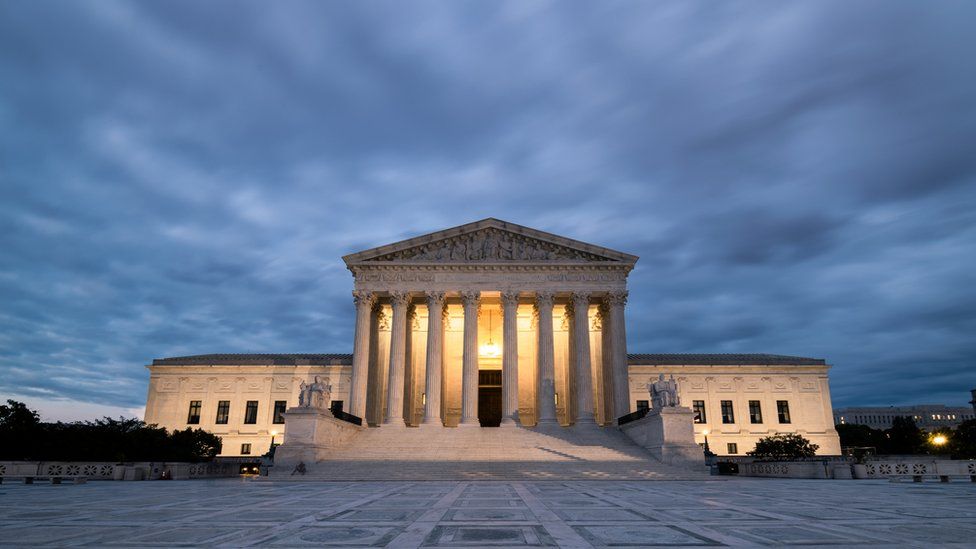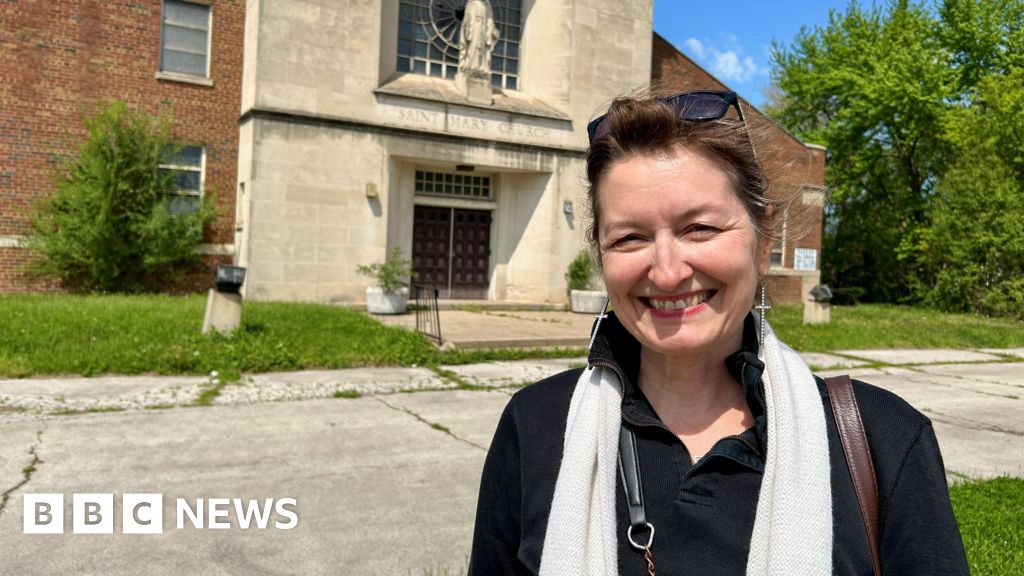ARTICLE AD BOX
 Image source, Getty Images
Image source, Getty Images
By Brandon Drenon
BBC News, Washington
The US Supreme Court has heard fiery arguments over a bankruptcy deal for Purdue Pharma, which may shield the Sackler family from future lawsuits.
In 2022 the family agreed to pay $6bn (£4.5bn) to address opioid addiction, after admitting to its role in selling OxyContin - a drug it knew to be addictive and widely misused.
In return a bankruptcy court gave the family immunity in all civil cases.
But US officials say the deal was an overreach of the court's power.
While Purdue Pharma filed for bankruptcy in 2019, the Sacklers did not. However, they were granted a protection usually preserved for companies faced with mass injury claims after they have filed for bankruptcy.
In court on Monday, Justice Department lawyers argued that deal conflicted with "the nuts and bolts" of bankruptcy law.
The Sackler family made billions creating and distributing OxyContin through Purdue Pharma. The painkiller proved to be highly addictive.
In the years since, they have been blamed by thousands of families for wrongly and aggressively marketing OxyContin, and minimising its potential hazards. Scores of families want the Supreme Court to overturn the deal and leave the Sacklers exposed to thousands of lawsuits.
Outside the court on Monday, protesters held signs reading: "Deadliest white collar criminals: The Sackler cartel" and "My dead son does not release Sacklers".
But other families impacted by the drug support the deal. Their position was reflected by the justices, who asked why the government was seeking to overturn the agreement.
Justice Elena Kagan - a liberal - noted that the deal had "overwhelming" support "among people who have no love for the Sacklers".
And conservatives Clarence Thomas and Brett Kavanaugh asked whether it was appropriate to overturn a plan that would "ensure prompt payment" for the families of victims.
Dede Yoder is tired of fighting
For seven years Dede Yoder fought for her son Chris' life, shuffling him in and out of rehab clinics as he struggled with an opioid addiction.
He was prescribed OxyContin at age 14 after receiving surgery. It marked the beginning of his battle with addiction.
From Connecticut to Colorado and Cancun in Mexico, Ms Yoder checked him into eight different in-patient rehabilitation centres.
"I spent probably $150,000 on his doctors," she told the BBC. "I was a single mom. I had no support."
Image source, Getty Images
Image caption,A woman outside of the US Supreme Court showed cameras the drug many say is responsible for the opioid crisis
Chris died of a drug overdose in 2017, aged 21. Then, a new battle for Ms Yoder began - the battle for justice.
She says after her son's death she tried multiple times to hire a lawyer, but no one would take the case, seeing an insurmountable obstacle against the legally-stacked Sacklers.
And so, she came to support the family's deal - which at least included $750m (£594) in compensation for bereaved families.
"Individuals would not stand a chance in hell to get anything out of the Sacklers if this [bankruptcy deal] doesn't happen," Ms Yoder told the BBC.
'Biggest' bankruptcy case in decades
At the core of the Supreme Court case is the question of whether bankruptcy courts have the power to give "third party releases" to entities that did not file for bankruptcy themselves.
Legal experts say the high court's ruling will have vast implications.
"I think this is probably the biggest bankruptcy case in front of the Supreme Court in decades," Pamela Foohey, a bankruptcy law professor at Cardozo School of Law, told the BBC.
Cases involving third party releases are often among the biggest bankruptcy cases filed, she noted.
"They're the headliner cases. They involve the most people who the bankruptcy system touches."
Image source, Getty Images
Image caption,Those affected by Purdue Pharma's OxyContin gathered outside the Supreme Court on Monday. Opinions over the bankruptcy deal are divided
Such releases have played a role in the settlements of multiple cases involving alleged widespread sexual abuse, including those against USA Gymnastics, Boy Scouts of America and the Catholic Church.
But Ms Foohey says she believes third party releases present "a large downside for victims or survivors".
The measure, she says, awards third parties protections without subjecting them personally to a bankruptcy court's strict oversight.
"That leads to backroom deals," Ms Foohey says, adding that, without a bankruptcy filing, "the outcome could be that the third parties do not contribute as much [money] as they can.
"And you can see this with the Sacklers," she observed.
The Sackler family withdrew roughly $11bn (£8.7tn) from Purdue Pharma in the decade before filing for bankruptcy in 2019. Justice Department lawyers said such behaviour essentially permitted "the Sacklers to decide how much they're going to contribute" under any agreement.
Another part of the argument before the Supreme Court is whether everyone affected must vote in approval of the settlement.
According to court documents, over 2,600 personal-injury claimants voted to oppose the Purdue Pharma deal, "and hundreds of thousands of claimants failed to vote at all".
"In the absence of bankruptcy, you can't just impose settlements on people without their consent by virtue of the vote of other claimants," says University of Illinois College of Law bankruptcy professor Ralph Brubaker, who filed an amicus brief against Purdue in the case.
For those with stronger claims, they could potentially receive a "much, much bigger payoff than the immediate cash amount that's being offered in the immediate settlement".
Not everyone is ready to settle
Ellen Isaacs, who lost her son to an opioid addiction five years ago, is opposed to the current settlement and offering the Sackler family immunity from future lawsuits from families like hers.
"It's really important to me that these people get held accountable for all the people that they've murdered," she told the BBC's media partner CBS. "They're criminals and they needed to be treated as such."
She thinks the Sackler family is getting off too easy.
The government says the current deal would permit the Sackler family to avoid claims alleging trillions of dollars in damages.
Of the $750m they've offered to contribute to compensate victims, the pay-out range is estimated to be $3,500 to $48,000 per family.
For Ms Yoder, however, something is better than nothing.
"I'm kind of hitting retirement age, and there's no way now that I can retire," she says, adding, "there's no family that could ever go up against the Sacklers, anyway."
She says that without the bankruptcy agreement: "The only people that will make money are the lawyers. And that's it."

 1 year ago
33
1 year ago
33








 English (US) ·
English (US) ·